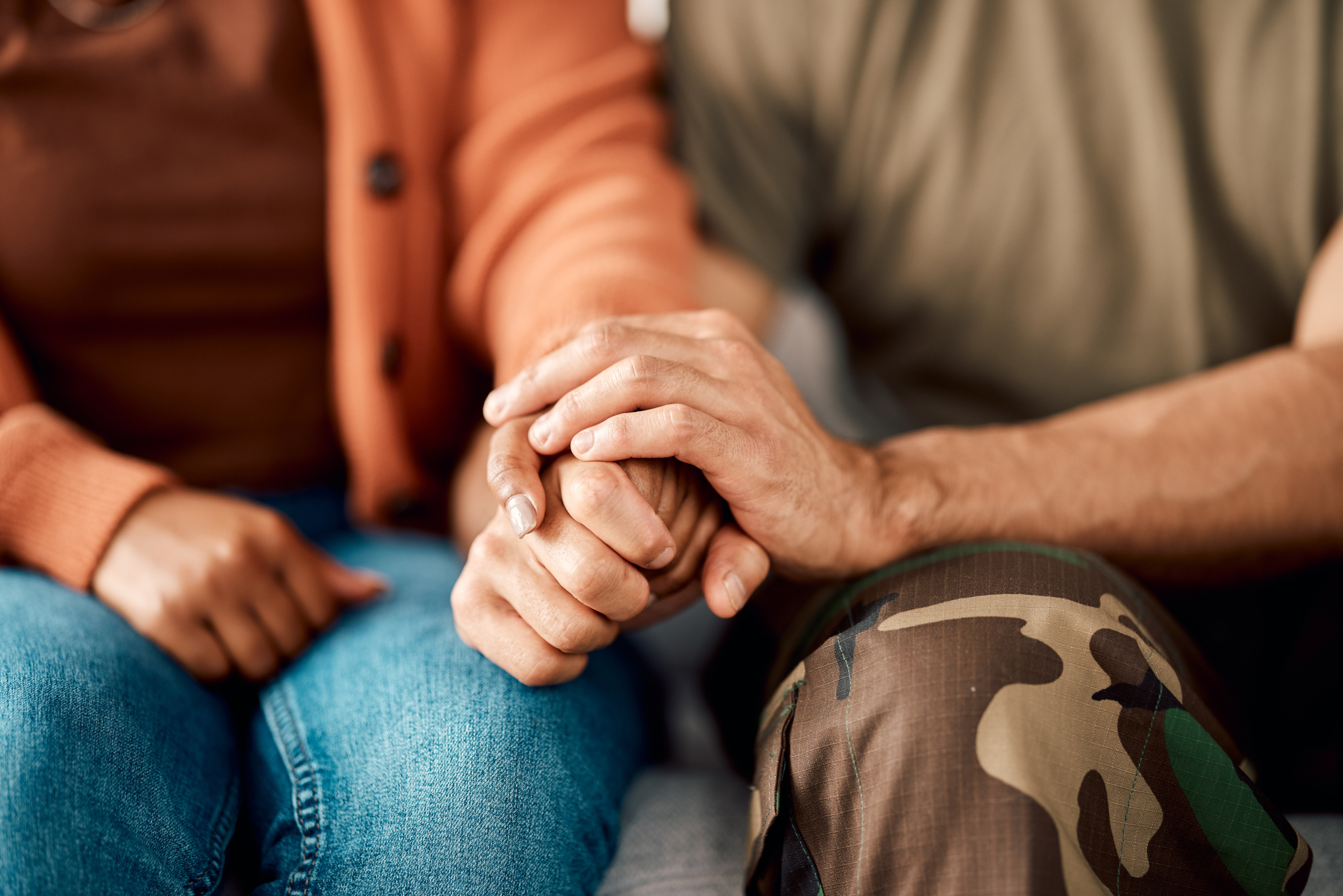When it’s going well, a strong, healthy relationship can be an incredible support through life’s toughest moments. When you feel love, trust, and a deep bond with another person, it’s almost as if you have a personal cheerleader, someone who will support you through thick and thin. Together, you celebrate your wins and get through your setbacks, with the entire partnership based on love, trust, and care.
Of course, relationships take hard work to maintain. People change, and external pressures or internal struggles can take their toll on a partnership. One of the best ways to support your relationship and ensure you two can make it for the long haul is with couples counselling. In this article, we’ll discuss the nature of couples therapy (mainly as a way to explore, heal, and grow your relationship), and also explain some of the top reasons to seek couples therapy.
What is Couples Therapy?
As the name suggests, couples therapy is a form of psychotherapeutic care that addresses two people (and their relationship) at the same time. Although different professionals use different approaches for couples therapy, there are a few main elements that are commonly seen across the board:
- An emphasis on trauma from earlier in life, examining how it may be affecting a person in the present
- Supporting a couple to better understand and accommodate their partner as an individual
- Promotion of self-understanding
- Support with communication and conflict resolution
- Assistance with connection and attachment styles
- Examining patterns of thought and behaviour in a relationship
- Developing a new level of trust, respect, and care in a relationship
Here at Hopewoods, our work with couples focuses on Emotionally Focused Therapy, or EFT. In EFT, we place a special emphasis on adult relationships and the ways we display and receive connection and affection. No two couples receive the exact same results from couples therapy, since the process is highly personal. However, you can expect successful couples counselling to:
- Help you get to the root of underlying issues causing surface-level relationship problems
- Teach you to handle big emotions from both yourself and your partner
- Support you in creating and maintaining healthy boundaries
- Teach coping strategies for you and your partner to use together and separately
- Empower you to make healthy lifestyle changes for the good of your partnership
- Flesh out your understanding of your relationship dynamics
- Develop and/or rebuild empathy, trust, and intimacy in your relationship
Now that you have a more complete understanding of the ‘what’ of couples therapy, it’s time to discuss the ‘why’.
Why Do People Go to Couples Therapy?
There are many, many causes that might bring a couple in for partner therapy. While the exact causes are never the same, we tend to see recurring themes again and again in many of our couples therapy clients. If you notice any of these problems, feelings, or frustrations in your relationship, it might be time to consider getting some impartial help from an expert third party.
1. Frequent, Hard-to-Resolve Conflicts
When you think of the reasons for couples therapy, the first thing to come to mind is probably fights. If you and your partner find yourself in frequent (or perhaps ongoing) conflict that feels hard or impossible to resolve, it might be time to get a little outside assistance.
Couples fight over all kinds of things, from financial stress to how to unload the dishwasher. In almost all cases, the true reason for these conflicts isn’t what it seems—rather, they’re often a symptom of a deeper-seeded issue that needs to be addressed. If it feels like you and your partner are on the outs more often than not, it could be worth sitting down with a professional to hash things out.
2. Communication Difficulties
It’s almost cliche to say it, but communication is key in a relationship. Does it ever feel like you and your partner just aren’t getting through to each other? Do they misinterpret you? Does it seem like they don’t put thought into what they say, or how they say it? Do you get accused of not listening? Are the two of you prone to going radio silence when you disagree?
All of these point to incompatibilities with your communication styles and behaviours. A couples therapist can pinpoint these areas for improvement, helping you to communicate more clearly and kindly.
3. Lack of Intimacy
A dead bedroom (or even just a lacklustre sex life) is, unsurprisingly, a very common reason for couples to seek therapy together. For many, sex and intimacy is a crucial part of connection. When this is disrupted, it can often lead to people feeling unwanted, creating an ever-growing rift between partners. Plus, it can put uncomfortable pressure on any intimacy that does happen, which only serves to worsen the problem.
Couples therapy can be an invaluable way to get to the bottom of a lack of intimacy in your relationship. The answer could be incompatible sex drives, but it might also be related to a deeper problem with emotional connection, trust, or simply the stress levels of your partner.
4. Loss of Emotional Investment
The ‘spark’ is one of the most important parts of a healthy relationship, but it’s also one of the hardest to describe. It’s an intangible feeling, but you know when it’s there and when it’s not.
Every couple has times when they feel closer and times when they feel more distant, but if it seems like the distance is only growing, and you don’t share the mutual emotional investment that you once did, it may be time to sit down with a professional.
5. Parenting Conflicts
Parenting is very, very difficult. It might be the most difficult thing you and your partner ever do. With such a challenge, it’s no surprise that conflict can arise between co-parenting partners.
Whether it’s a matter of parenting style, an imbalance in the workload of childcare, or simply a lack of recognition for one parent’s hard work, parenthood is ripe for conflict between couples. For the sake of your relationship and your children, it’s a great idea to seek help from a couples therapist when parenting conflicts arise.
6. Addiction
Addiction is a tricky topic when it comes to partnerships. Whether someone is addicted to substances, such as drugs or alcohol, or something else, such as pornography or food, it can be very difficult to navigate this illness with grace as their partner.
A couples therapist can help you address your frustrations and hurt feelings without adding fuel to the proverbial fire. The goal here is to support a partner struggling with addiction, helping them to put their vice aside in favour of your relationship. This can be very, very challenging to do alone, so it’s best done with the support of a trained therapist.
7. Broken or Damaged Trust
Trust is an essential ingredient in the recipe for a strong relationship. But when trust is broken or damaged, such as in cases of unfaithfulness or infidelity, it can feel impossible to put the pieces back together again on your own.
For those who want to make it work after trust has been broken, a couples therapist is invaluable. They can help you navigate the situation with grace, prioritizing your feelings throughout the process.
8. Trauma During a Relationship
Sometimes, a strong relationship is put to the test by trauma or tragedy. This can take many forms, such as the loss of a child, abuse, violence, or serious illness or injury.
Whatever the case, trauma can create a surprising amount of distance between partners, even if neither was at fault for what happened. A couples therapist can help the two of you navigate this trauma and enter a new phase of healing as a united partnership.
9. Unresolved Past Trauma
In other cases, trauma from before the relationship can rear its head much later. This can be tough to navigate, especially if you weren’t in your partner’s life when they went through something traumatic.
A couples therapist can help you develop a toolkit of supportive strategies, while simultaneously fostering trust in your partner.
10. Navigating Non-Traditional Relationships
For people who opt for non-traditional relationships, such as open marriages or polyamory, unexpected emotions can often arise.
A couples therapist can help you and your partner(s) address feelings of jealousy, mistrust, or unfair comparison, supporting your relationship and allowing you to love however you see fit.
11. Mental Health Conditions
When one partner deals with a clinically diagnosed mental health concern, it can put a strain on a relationship. Even when your partner has the best intentions, a lack of understanding can make it hard for someone with a mental disorder to truly let their guard down.
We frequently see this when one person has depression or anxiety, but other mental health conditions can cause similar challenges in a relationship. A couples therapist will help you and your partner find common ground, communication skills, and coping strategies that work for both of you.
12. Strengthening a Bond When Things Are Going Well
There doesn’t have to be something wrong to benefit from couples therapy! Many couples turn to therapy as a way to strengthen an already solid bond.
This shows a commitment to the health of the relationship and the happiness of their partner, fostering greater trust, communication, and intimacy before a problem presents itself.
Getting Started with Couples Therapy
If you’re facing any of the above issues, or if you’re simply looking to deepen your connection with your partner, couples therapy could be the answer you’ve been looking for. At Hopewoods, we’re proud to offer comprehensive, highly customized couples therapy to our clients. We go beyond helping you stop fighting, instead tapping into the deeper reasons for conflict, mistrust, or miscommunication.
With time and dedication, you and your partner will regain the spark of love and have a stronger, healthier, happier relationship to show for it.
If you’re ready to begin, book your free 30-minute consultation with HopeWoods today.









 通过
通过